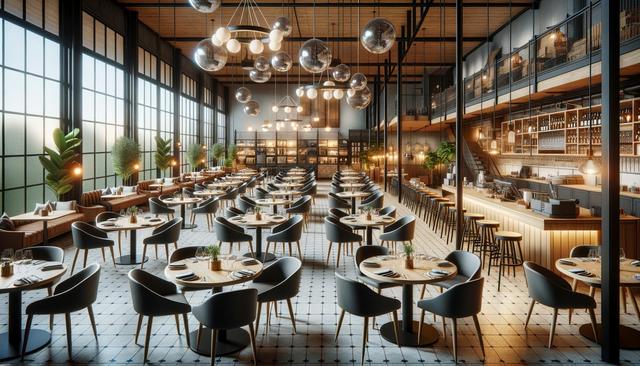Why Consider Wholesale for Restaurant Furniture?
When setting up or renovating a dining space, choosing to buy restaurant furniture wholesale can be a strategic decision. Wholesale purchasing allows restaurant owners to access significant cost savings by buying in bulk. It also ensures consistency in design and quality across the venue, which is crucial for creating a cohesive dining environment. Moreover, wholesalers often offer a broader selection of items tailored specifically for the hospitality industry, making it easier to find solutions that meet both aesthetic and functional needs.
Restaurants of all sizes, from small cafés to multi-location chains, can benefit from engaging with wholesale suppliers. These vendors typically understand the durability requirements of commercial spaces and can provide furniture made from materials suited for high-traffic areas. In many cases, wholesalers also offer customization options, helping restaurant owners maintain brand identity through furniture design.
Types of Restaurant Furniture Available at Wholesale
Wholesale suppliers typically carry a wide range of furniture options to accommodate various restaurant styles and concepts. From casual bistros to upscale dining rooms, the selection includes pieces that cater to different atmospheres and customer experiences. Common categories of wholesale restaurant furniture include:
- Dining chairs and bar stools
- Dining tables and communal tables
- Booths and banquettes
- Outdoor patio furniture
- Reception and waiting area seating
Each category often comes with sub-options for materials and finishes, such as metal frames, wooden elements, upholstered seating, and weather-resistant designs for outdoor use. This variety helps restaurant owners match their furniture with the overall interior design and customer expectations.
Understanding Materials and Durability in Wholesale Furniture
One of the key factors in selecting wholesale restaurant furniture is the durability of materials. Commercial-grade furniture must withstand constant use, frequent cleaning, and occasional rough handling. Commonly used materials include:
- Hardwoods like oak or beech for strength and longevity
- Powder-coated steel frames for resistance to rust and wear
- Commercial-grade vinyl and fabric for upholstered items
- High-pressure laminate for table surfaces
These materials are selected not only for their visual appeal but also for their practicality and ease of maintenance. When shopping wholesale, it’s important to confirm that the items meet industry standards for safety and durability, particularly in environments with high customer turnover.
How to Choose the Right Wholesale Supplier
Finding a reliable wholesale supplier involves more than comparing prices. Restaurant owners should consider a supplier’s reputation, product range, customer service, and delivery capabilities. A dependable supplier will offer guidance on product selection, fulfill bulk orders accurately, and provide after-sale support when needed. Here are a few tips for choosing the right partner:
- Read reviews and testimonials from other hospitality businesses
- Request product samples or visit a showroom if possible
- Verify lead times for manufacturing and shipping
- Ensure customization options align with your brand vision
- Check warranty and return policies for peace of mind
Working with an experienced supplier can also open the door to ongoing collaborations for future expansions or renovations, making the initial investment into a reliable wholesale partner even more valuable.
Cost Considerations and Budget Planning
Budgeting is a central part of any furniture procurement strategy, and wholesale purchasing offers several advantages in this area. Bulk pricing reduces the cost per item, and some suppliers offer tiered discounts based on order size. Additionally, buying from a single source can streamline logistics, saving on shipping and coordination costs. However, it’s essential to factor in all associated expenses, including:
- Shipping and handling fees, especially for large or heavy items
- Assembly or installation costs
- Taxes and import duties for international orders
- Long-term maintenance and replacement planning
Creating a detailed procurement plan that includes these variables helps avoid unexpected costs and ensures the furniture investment aligns with the restaurant’s financial goals. Some suppliers also offer financing options or staged deliveries to accommodate different phases of restaurant development.


